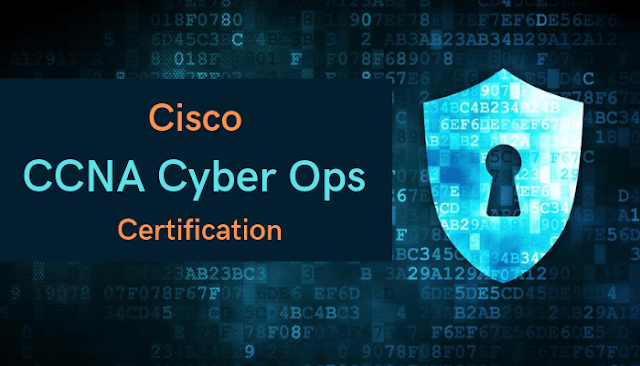Being assured that you are safe & secured in the world of technology is the biggest relief one can have. Today organizations life line is data; if the data is exposed to any cyber threats then the top officials can have sleepless nights. Therefore, certified cyber security professionals are in-demand, as they identify the potential threats and protect the data from ill –intended hackers. There are quite a few certifications which validates that you have required skills for being a cyber-security specialists.
But in the year 2021, Cisco has retired one such exam which is CCNA Cyber Ops certification. So today in this blog we will try to understand that why CCNA Cyber Ops certification has retired? & does it have any replacement?
CCNA Cyber Ops Certification Retired:
There might be thoughts running in your mind that why CCNA Cyber Ops certification is retired? Because the idea is Cisco wants to make it less complicated i.e. “Fewer are Better”. That means there is no need to take ample of exams to gain basic knowledge, this can be achieved even with an exam. This has made the entire procedure simpler for acquiring the certification as compared to before particularly at beginner’s level. Also the material that was covered in CCNA security has not gone anywhere it has been just restructured.
But you don’t have to feel sad because you still have the opportunity to learn CCNA Cyber Ops through Cisco Certified Cyberops Associate certification.
So let’s understand in detail Cisco Certified Cyber Ops Associate, which is a new certification update in 2021.
Cisco Certified CyberOps Associate certification:
This certification is quite a new certification. The one who has gained Cisco certified Cyber ops associate certification is ready for today’s associate level job roles in security operations centers. This course includes one training program and one exam which covers basic skills, processes, knowledge that you would require to identify, analyze, prevent & to respond to cyber security incidents as you will be a part of SOC team.
Do you know what Cyber Security is?
Well it is a process wherein we protect our systems, networks, and programs from Ill-intended hacker’s These cyber-attacks are usually done with an intention to access, change, or destroy sensitive & confidential information which would eventually lead to extorting money from users or to cause disturbance in the routine business processes.
Exam:
In May 2021, Cisco combined the two exams which is Understanding Cisco Cybersecurity Fundamentals (SECFND) & Implementing Cisco Cybersecurity Operations (SECOPS), & formed one complex exam i.e. Cisco Certified CyberOps Associate certification. The topics included in the exam are detailed below:
Security Concepts:
20% of the exam content includes questions from security concepts. Here, the security terms and deployments and the CIA triad (Confidentiality, Integrity and Availability) are illustrated and differences are pointed out between the security concepts and access control models. In short, this topic comprises of foundational terms and terminologies that are used in cyber security.
Security Monitoring:
25% of the exam content includes questions from security monitoring. The candidates are expected to know how data visibility and the uses of data in security monitoring are impacted by the technologies which are used i.e. NAT,PAT, tunneling or encryption. The candidates are expected to describe the types of data that is provided by, for instance, TCP dump and NetFlow. Also one should be aware about different types of attacks and techniques & how to identify the certificate components.
Host- Based Analysis:
20% of the exam content includes questions from host based analysis. Here, the candidate needs to explain the following concepts like some endpoint technologies i.e. host-based IPS and firewall, what is the role of attribution in an investigation, identifying components in OS and type of evidence based on log files. Well, how to interpret logs for identifying a given event is of key importance.
Network Intrusion Analysis:
20% of the exam content includes questions from Network Intrusion Analysis. Identification of key elements for an intrusion in a given packet capture file, interpreting the protocol headers and common artifact elements from an event to identify an alert are the few things which the candidate is expected to know.
Security Policies & Procedures:
15% of the exam content includes questions from security policies and procedure. Description of management concepts and elements in an incident response plan as per NIST’s documentation is must for passing the exam. Apart from that identification of elements that are used for network and server profiling is also vital.






